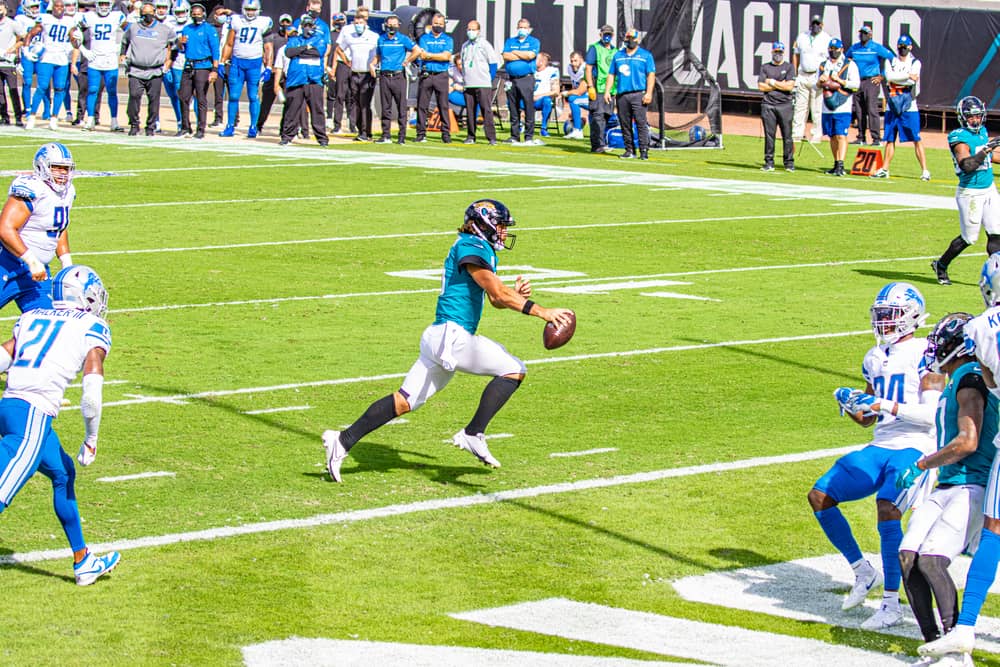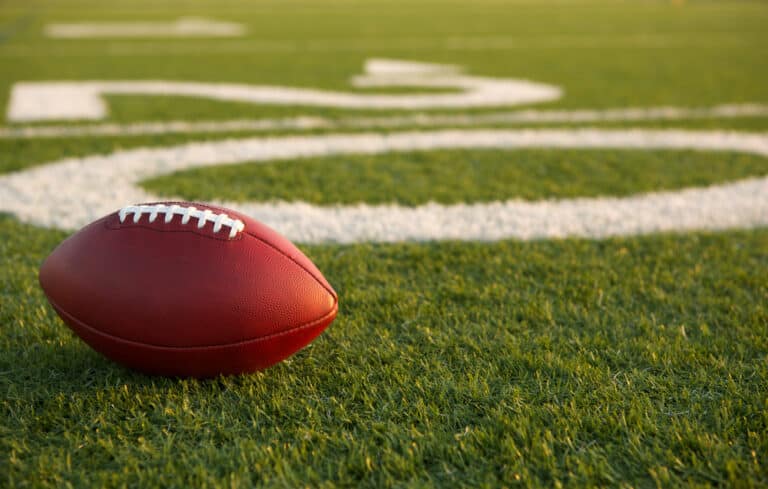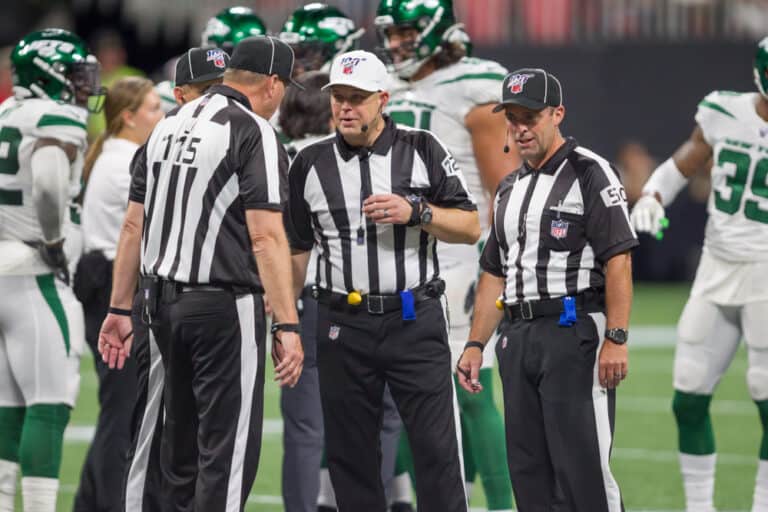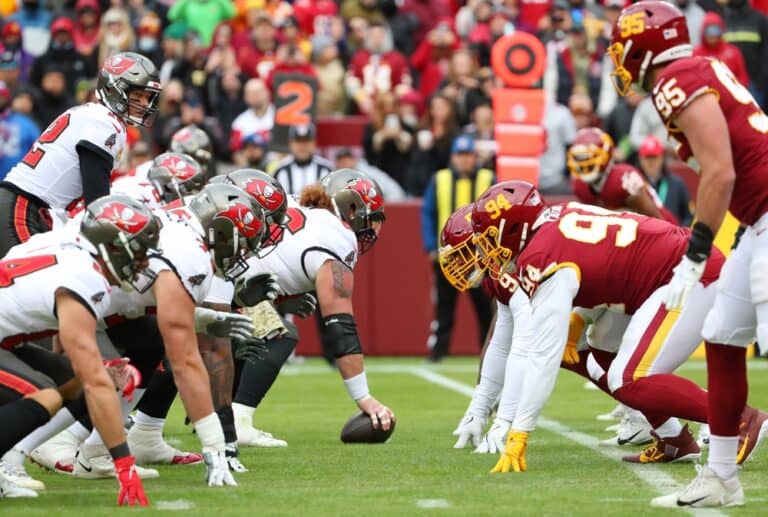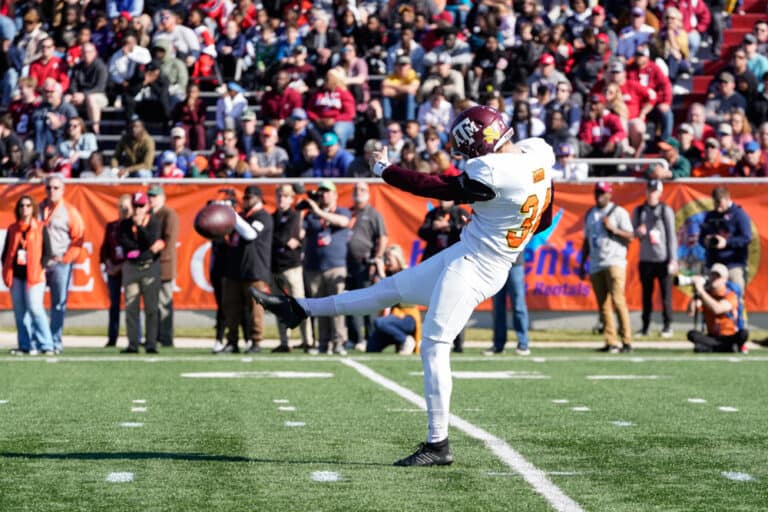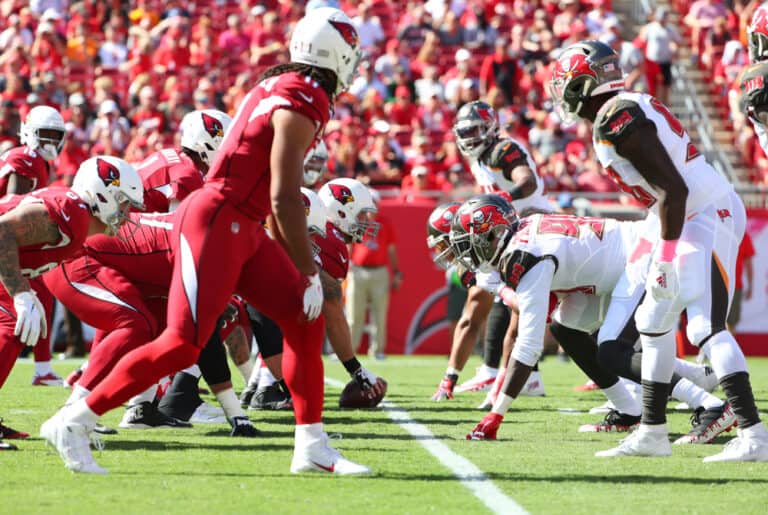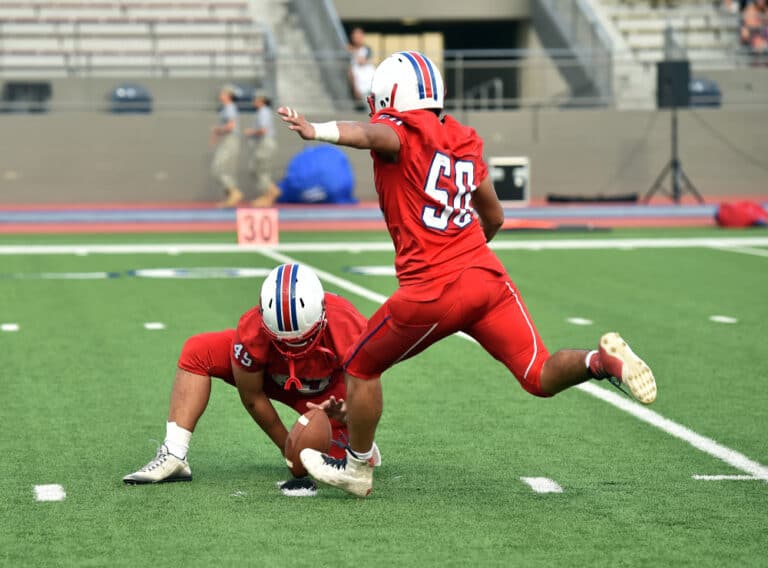Point Shaving In The NFL (All You Need To Know)
Editorial credit: April Visuals / Shutterstock.com
In the 2005 movie titled ‘The Longest Yard,’ Adam Sandler plays quarterback Paul Crewe who was accused of point shaving in the NFL in 2005. Although it was never proven, point shaving is problematic in several professional sports – but what is point shaving in the NFL?
Point shaving is an illegal practice whereby players collude with gamblers to change the game’s point spread, but not the result. This is classified as match-fixing and carries serious penalties, including jail time for perpetrators if caught and convicted.
But how does point shaving work, and what are some examples of this shady practice in the NFL? We’ll don our detective overcoats as we merge into the shadowy world of illegal sports gambling and get to the bottom of point shaving in the NFL.
How Much Money Is Involved In NFL Sports Betting
Point shaving is not about changing the game’s result but about influencing people’s bet on the point spread. According to this 2018 article by the American Gaming Association, the NFL could increase its annual revenue by $2,3 billion through legalized available sports betting!
That’s a whole wack of cash! And that’s from the legal betting. Not only that, but when you consider that more than $100 billion is made in wagers during an average NFL season, you get a glimpse of the scope and volume of money changing hands.
How Does Point Shaving Work In The NFL
This is where point shaving comes into play. By influencing the point spread in any game, the gamblers and colluding players or officials can make themselves a sizeable ‘overtime’ game bonus. The problem is that once players or officials agree to do this, it is very difficult to extricate from it.
For example, you have to bet the Rams to beat the Giants by 5 points or better. So if the final score is 20-15 Rams, you win, if that were 22-15, you would also win, but if the score were 20-16, you would lose.
Point shaving is more about the offense, not scoring points, as this is how the point spread is controlled or influenced. If the majority of the betting money is on a five-point spread and there are far greater odds on a four-point spread, if you can influence the game to achieve the four-pointer, then your winning will be substantially greater than the point spread.
Players can do this in several ways, like throwing the ball out of bounds or not stopping the clock on critical plays when another score would achieve the point spread. Dropping the ball or fumbling it on decisive plays or tipping or failing to catch passes are all ways that players can influence the outcome on the points side.
Sometimes, officials could be involved and can also influence the game as far as calls are concerned. The score comes when gamblers bet against the bribed team and can make big money when the point spread goes in their favor.
Has There Ever Been Point Shaving In The NFL
There have never been any official point-shaving scandals in the NFL, and while there may have been some accusations, no point-shaving has ever been proved.
Still, there have been instances of point shaving in college football, largely because NCAA players aren’t paid and can be easy targets for gamblers. Even with the changes to the laws that allow NCAA players to make money from their names and images, they are not paid to play.
Alex Karras And Paul Hornung
Two NFL players Alex Karras an All-Pro Defensive lineman who starred in the 80s sitcom Webster and Paul Hornung – a former NFL MVP who set a league scoring record in 1960 that stood for 46 years, were both suspended indefinitely after routinely betting $500 on the NFL.
The suspension only lasted one year, and Pete Rozelle noted when issuing the suspension that neither player had bet on their teams- Hornung was later elected to the Hall Of Fame.
Art Schlichter
Another example of a player that bet on sports, including the NFL, but was never convicted or proved to have shaved points in an NFL game as he, like Karras and Hornung above, never bet on his team.
After a year, he was reinstated in the NFL in 1985 but never went on to win an NFL game and was out of the game the following year.
Could Legalised Gambling Increase The Risk Of Point Shaving In The NFL
Former NFL Commissioner Paul Tagliabue has expressed concern about a possible increase in point shaving after the NFL announced its official appointment of Caesar’s, FanDuel, and DraftKings as official betting partners in April of 2021.
In his article in the Bleacher’s Report, he expresses concern that while he had kept the NFL and legalized betting apart in his tenure, the recent concession by the NFL to appoint betting partners could lead to an increased risk of point shaving.
Some of the reasons that the NFL has never been embroiled in point shaving is because players earn well, and since there are only 11 players on the field, it is easy to sub out a player that could be ‘playing to lose’ without any real impact being made on the points result.
Unless the quarterback is involved in the deal, it would be very difficult to control the offensive team’s activities in terms of scoring. As if the QB was ‘having a bad day, the coach would sub him, putting paid to any on-field shenanigans.
Point shaving is more common in high-scoring sports like basketball, which has been hampered throughout the decades by point-shaving scandals, as has baseball.
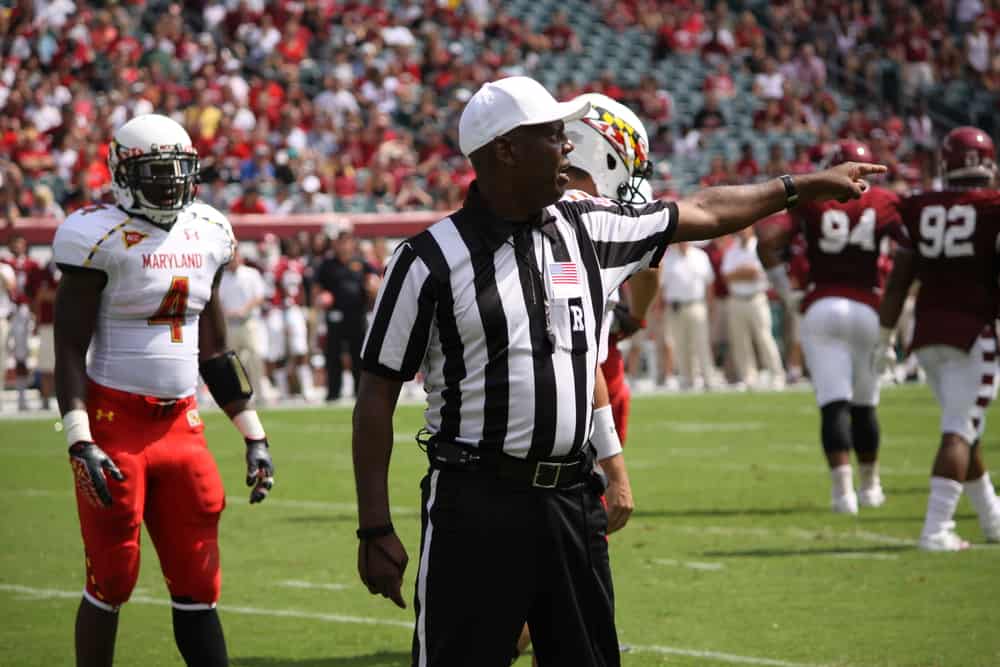
Conclusion
While more prevalent in other sports like baseball and basketball, point shaving remains a shadow on the field of the NFL. Still, considering the number of players gamblers would need to control to achieve any influence, this is unlikely to happen any time soon.
The other hole-in-the-head for point shaving in the NFL is once the revenue from advertising and other streams improves due to legalized betting, those appointed partners will step up the protection of their investment, making successful point shaving virtually impossible.
Resources
- https://www.americangaming.org/new/nfl-could-reap-2-3-billion-annually-due-to-legalized-sports-betting/
- https://www.quora.com/What-is-the-meaning-of-point-shaving-in-NFL
- https://www.theatlantic.com/culture/archive/2011/04/how-point-shaving-works/349575/
- https://bleacherreport.com/articles/10005876-ex-nfl-commissioner-paul-tagliabue-worries-legal-gambling-could-lead-to-point-shaving

